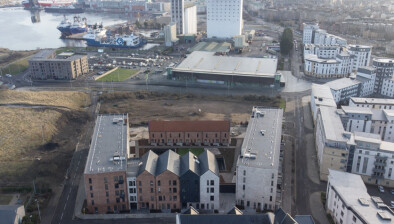City of Edinburgh Council’s short-term lettings decision: full case report

After the City of Edinburgh Council’s licensing scheme for short-term lets operators was deemed unlawful at the Court of Session, our sister publication Scottish Legal News has published the following case report.
A Lord Ordinary has ruled that a policy of the City of Edinburgh Council creating restrictions on the granting of short-term lets in tenement buildings is unlawful at common law after a petition for judicial review was brought by a number of providers of short-term accommodation in the city.
Petitioners Peter Averbuch, Dickins Edinburgh Ltd, Reserve Travel Ltd and Edinburgh SC Ltd all owned portfolios of properties let under short-term lets (STLs), many of which were in tenement buildings. They sought declarator that the Council’s policy was irrational and oppressive at common law and reduction of the policy.
The petition was considered by Lord Braid. Ross KC and R Anderson, advocate, appeared for the petitioner and Mure KC and Blair, advocate, for the respondent.
Normal practice to refuse
The particular aspects of the policy under challenge were a provision described as a rebuttable presumption against granting licences for secondary letting in tenements and a part restricting the period of such a licence to one year, in contrast to the three-year period for home letting and home sharing. Also under challenge was the absence of any regime for temporary licences for secondary letting, irrespective of the nature of the property and a requirement in respect of all secondary lets, whether in a tenement or not, that bedrooms, living rooms and hallways must be covered by a suitable floor covering such as a carpet or similar.
Senior counsel for the petitioners submitted that the rebuttable presumption amounted to no more than a statement that it would be normal practice to refuse an STL licence for secondary letting in a tenement, with no real guidance given as to how to rebut it. The one-year limit was an unjustified inequality of treatment between different properties and would prevent the taking of bookings more than a year in advance.
It was further argued that the absence of any indication of any factor which may be relevant to an application for a temporary licence, and the decision to have a rebuttable presumption against putting secondary letting in the scope of temporary licences, was unintelligible. Further, the floor coverings provision was an irrational and arbitrary exercise of the respondent’s discretion.
It was the respondent’s position that the policy as a whole was a rational and proportionate response to issues posed by short-term letting in Edinburgh. It had taken the view that all tenemental accommodation was unsuitable for secondary letting, which was challenged by the petitioners as not supported by the consultation or research undertaken.
No consistency
In his decision, Lord Braid said of the rebuttable presumption: “While [case law] appears to discourage any notion that a policy should contain any reference to presumptions, the fact that the respondent’s licensing policy does contain such a reference is not necessarily fatal to it, albeit it is somewhat clumsily expressed, since that is simply another way of stating what will normally happen. What is destructive of that part of the policy is that it is clear that refusal is not what will normally happen.”
He continued: “Where, as here, there is an expectation that well-run businesses will be granted a licence, and there is no suggestion that the petitioners are exceptional in some way, it must be anticipated that there will be more than a few departures from the policy, so that the grant of a licence cannot be regarded as exceptional, as that term is normally understood. The rebuttable presumption will not in fact achieve consistency, nor will it assist applicants in knowing whether or not an application is likely to be granted.”
On the temporal restriction, Lord Braid said: “I have concluded that this part of the policy is not irrational. The petitioners’ main objection is a claimed inability to take bookings more than one year in advance. However, on this issue I prefer the respondent’s submissions, although that is, in part, because of the respondent’s declared position at the hearing, that a licence once granted is likely to be renewed, other than on a material change of circumstances.”
Turning to the temporary licence provisions, he went on to say: “The observations made above in relation to full licences apply equally here: it is irrational, where planning permission has already been granted, and where the function of licensing is to address safety and neighbour concerns, to have a general policy that temporary licences will not be granted.”
Lord Braid concluded on the issue of floor coverings: “To the extent that the policy requires carpets for all secondary lets, including ground floor flats and detached houses, I consider that it is irrational and, to the extent that it could expose a licence holder to significant expense for no good reason, it is oppressive and does go beyond what is necessary to control noise.”
It was additionally concluded that the policy was in breach of the Provision of Services Regulations 2009. The case was thereafter put out by order to discuss the wording of the orders to be made in light of the decision.








